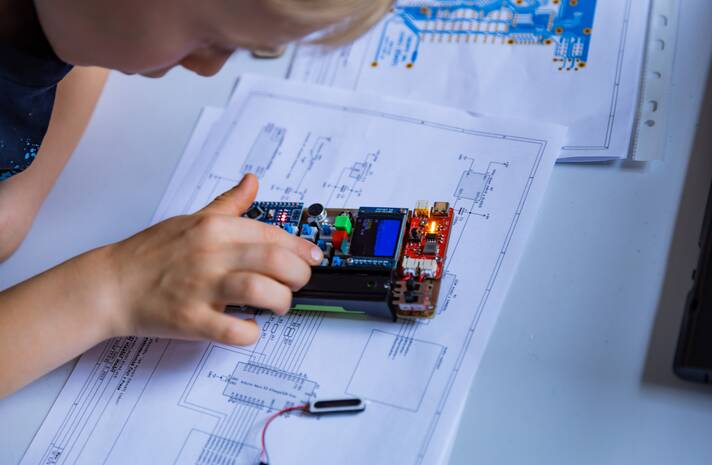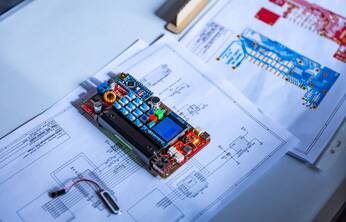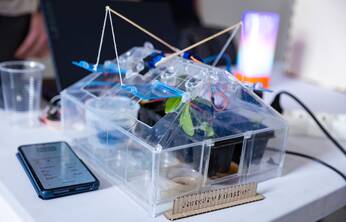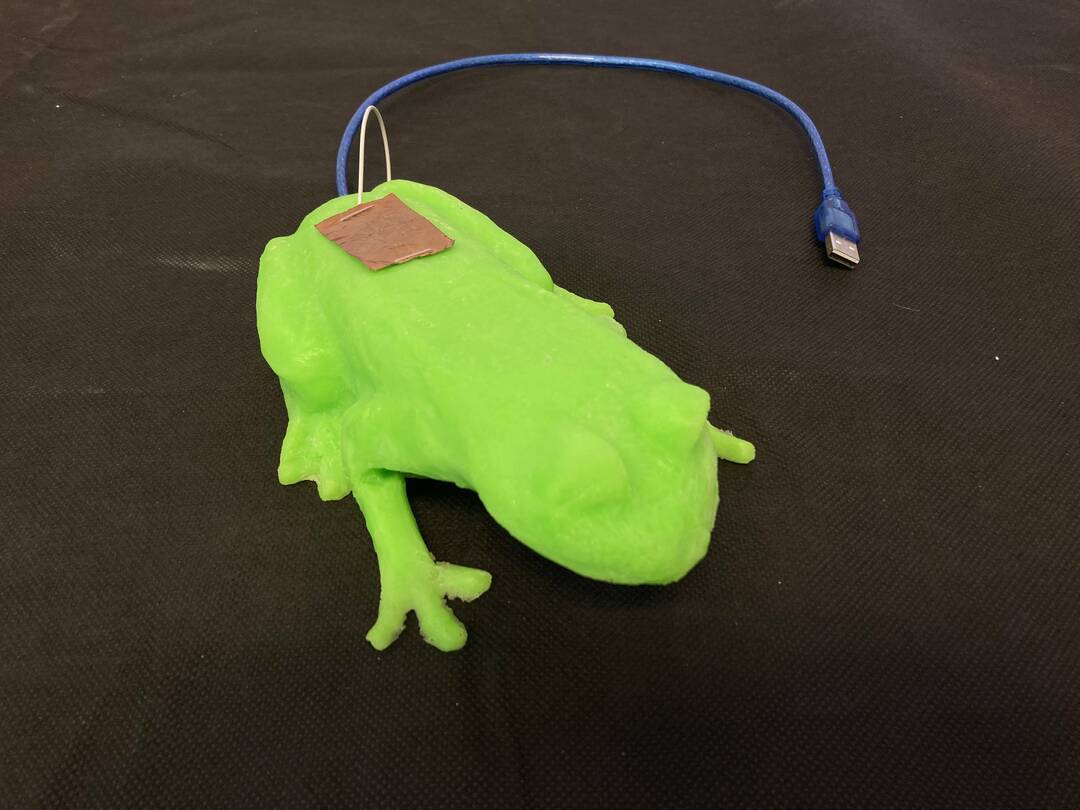The course How to Make (Almost) Anything, also abbreviated as JVC, under the guidance of the guarantor Jiří Zemánek and the PhD student Krištof Pučejdl, successfully started at the FEE CTU in 2023 and is always taught in the summer semester. In the course, students learn digital manufacturing with the help of software and hardware tools, including CAD/CAM, laser cutting, 3D printing, programming and more - through discussions, lectures and practical exercises. The course was again in demand in the 2024 semester and completely filled up with a large group of students. Technical support was provided by Bosch and Prusa Research, and a brand new addition to the teaching team is provided by trainers from the Maker Institute platform.
Make and publish: a hydroponic greenhouse, your own mobile phone or a frog alarm clock
At the end of the JVC course, each student is tasked with completing a personal project applying as many of the topics covered as possible. This is not just a matter of "basting", but also of honestly documenting the work on the students' website, which serves both as a personal portfolio and to share their knowledge and experience. The exhibition of projects at the end of last semester perfectly captured the word "anything" in the course title: there were new musical instruments or their electronic accessories, board games including an automatically controlled chess set, a miniature hydroponic greenhouse or even a working mobile phone. "For example, one student, who had no experience with digital manufacturing, started last year's course with the idea of making her own alarm clock in the form of a croaking frog - and she actually succeeded," says course leader Jiří Zemánek from the Department of Control Engineering at FEE CTU.
Interdisciplinary cooperation thanks to the Maker Institute
"The organisation of the course is quite demanding, which is why I am glad that this year we have students from last year helping us. In addition, we have newly joined forces with the professional team of the Maker Institute, which helps us in teaching and practical exercises," continues Jiří Zemánek. The Maker Institute is a non-profit organisation that was created within the Kampus Dejvice association thanks to the initiative of students and teachers from the VŠCHT and the Faculty of Architecture of the CTU. The Institute creates an interdisciplinary environment, a kind of hotspot for makers, DIYers and innovators of different backgrounds and skills - for example, it organises thematic courses for lifelong learning. "We want to be one of the drivers of new DIY and digital manufacturing, so working with the JVC team is an obvious choice for us," says Leyla Yunis, the institute's director, adding: "When teaching the JVC course, our focus is on an interdisciplinary understanding of making and bridging disciplines. We reach out to new students, helping with the workshop program and running shared machines. It shows that maker skills are important in developing innovation and creativity for society, so we would like to support polytechnic education on all fronts."
The ecosystem of new DIY in the Czech Republic is alive - from FabLabs to Maker Faire
The Faculty of Electrical Engineering of the CTU has been supporting the Maker movement for several years, whether through a strong presence at Maker Faire festivals and their programme support, or through educational programmes, including the JVC course. Another project, again originating from MIT, is the FabLab, a global network of open workshops. "The Maker Institute is one of the few organisations in the Czech Republic that runs a FabLab workshop, although only in a simplified mobile form for now - we are considering setting up a similar space at FEL," adds Jiří Zemánek, who is also involved in preparing the FAB2025 World Open Workshop Conference in Prague and Brno next year on behalf of Prague Tech.
Photos of the presentation of the JVC 2023 course creations can be found here.





